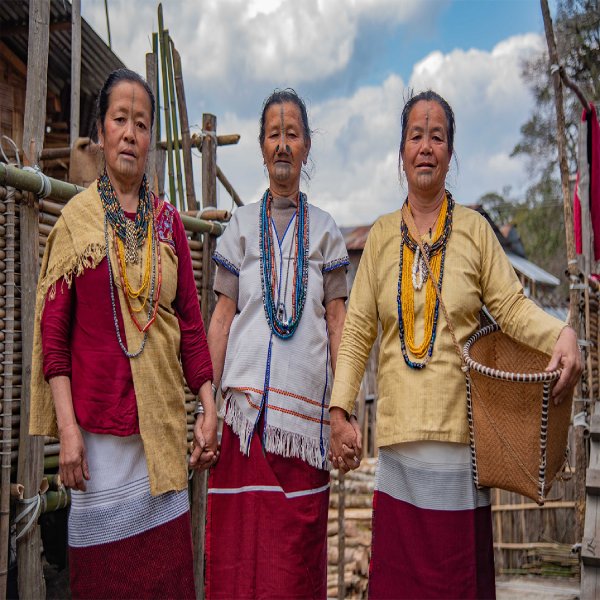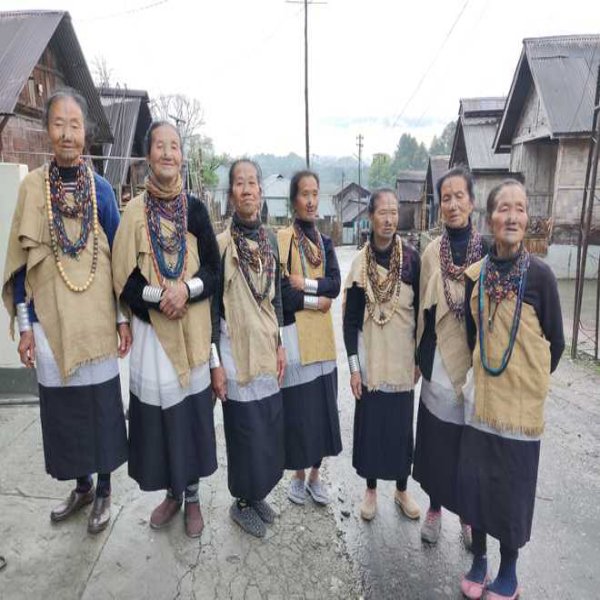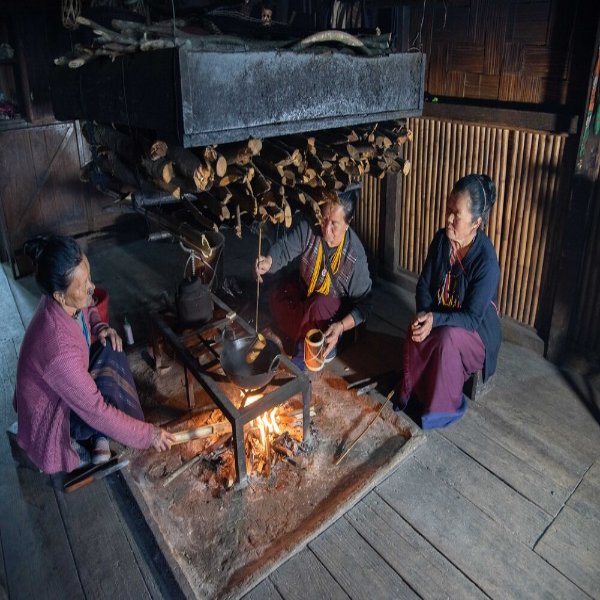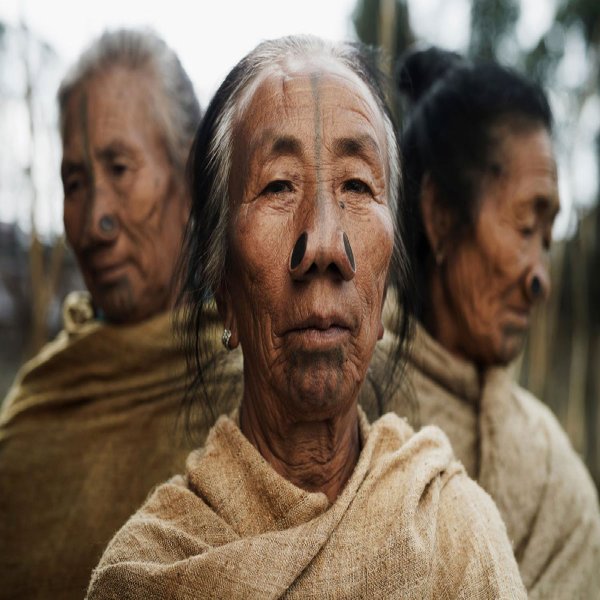
Themes
practices showing communitarian life
Apatani’s Communitarian Life , arunachal pradesh

Together with unique wet rice cultivation with fish farming, there is a wonderful place in the hills of the Ziro Valley, Arunachal Pradesh, called the Adi. The Apatanis have been known to live in harmony with nature, depending on paddy cum fish culture and bamboo forestry. These practices of their traditional agriculture with optimum utilization of natural resources considered quite a sustainable relationship with the environment.

Apatani society is based on shared responsibilities for agriculture and water management, essential to the tribe’s rice-fish cultivation system. They have a custom of collectively maintaining the irrigation channels that water their terraced fields, with all members taking part in cleaning and repairs. This cooperation ensures efficient water usage, as well as equitable resource access, exemplifying a deep communal bond.

The social structure of the Apatani constitute Bulyang, the village council, which is the governing body of customary law and administration of community resources. Each household indeed has roles in village activities, for the council's resolution to be accepted by all. This structure forms an important basis for the maintenance of social harmony and settlement of conflicts through a non-penal, consensus manner in the community.

The Apatanis practice Donyi Polo, a belief system that venerates the sun and moon and emphasizes respect for nature. Their cultural practices include nature worship and a strong spiritual connection to their land. These beliefs underscore their sustainable practices, as they view environmental stewardship as a sacred duty, showing reverence for both land and community.

Interdependence is maintained between the individual and the tribe with a common identity. While agriculture, environmental protection, and observance of rituals all contribute to maintain social unity, the philosophy of community living is gaining worldwide attention today as a sustainable ecologically sensitive way of life that conserves cultural heritage.

